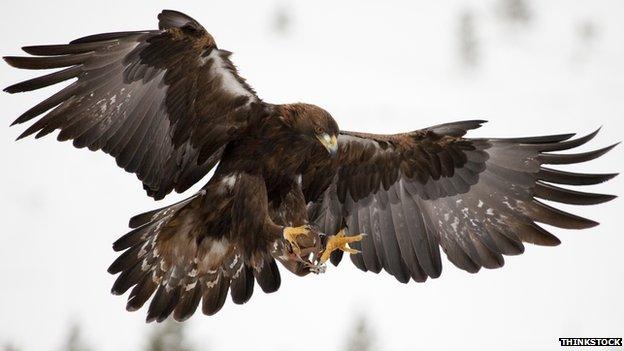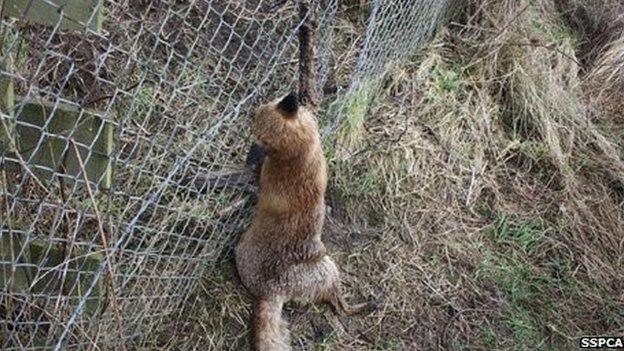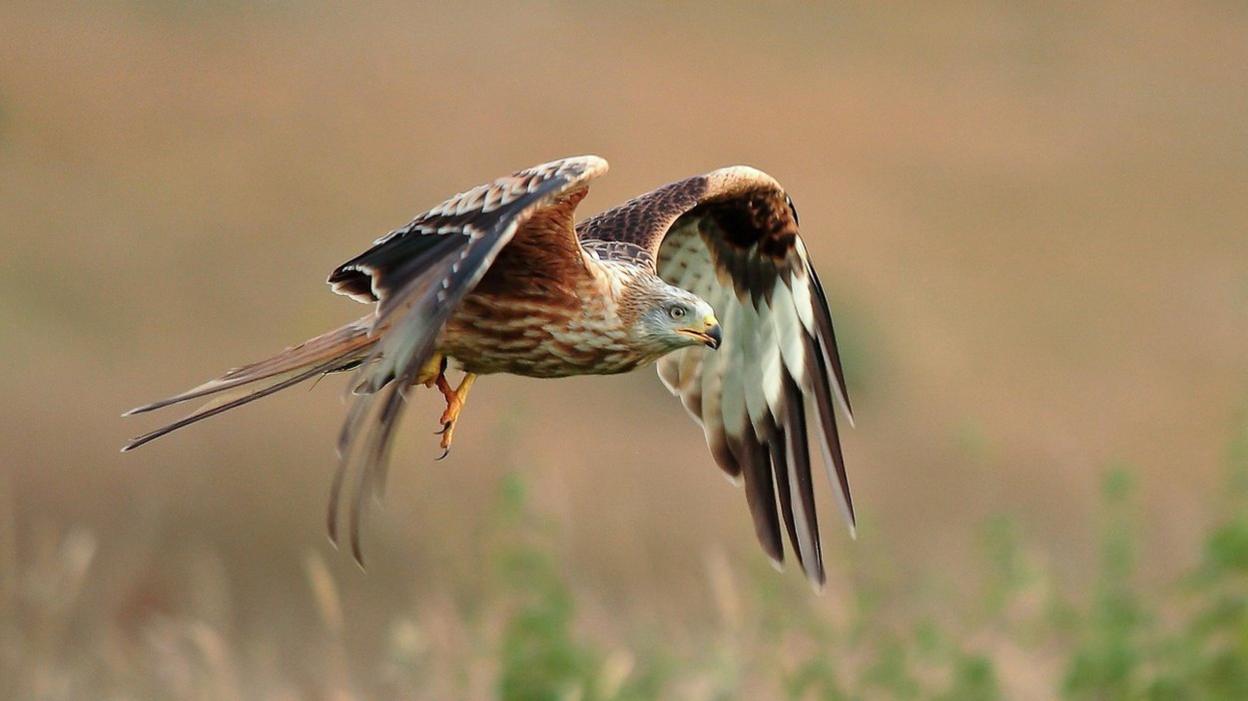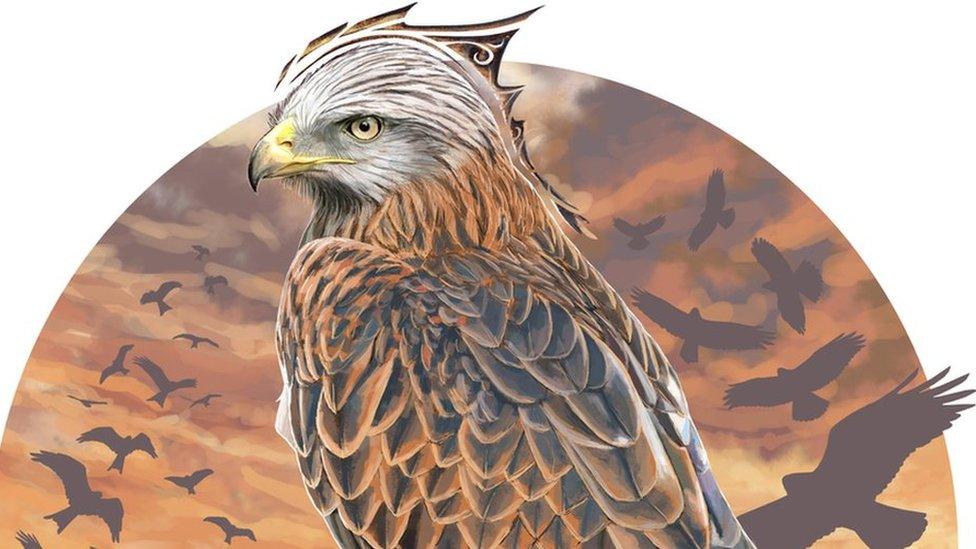Wildlife crime action call over Scottish prosecutions
- Published

Scotland's international reputation as a haven for wildlife is at risk because of the country's failure to investigate and prosecute wildlife crime effectively, it has been claimed.
The findings of a new report, external, which include the suggestion that offences are greatly under-reported, have been described as a "damning indictment".
The report was published by Scottish Environment Link.
But the Crown Office dismissed the report as "ill informed".
And Police Scotland said investigations into the suspicious deaths of wildlife were "complex, difficult and prolonged", but said improvements had been made with the creation of the single force two years ago.
'Economic interests'
Eddie Palmer, the convener of the Link's wildlife crime task force, said: "Practices that were once acceptable are now considered cruel and criminal.
"This is especially so where the practices are obviously linked with economic interests.
"Behaviour in certain minority groups has lagged well behind these changes in our attitudes.
"It is time to change that behaviour and stamp out these crimes."

There have been calls for a complete ban on snares
But the report prompted a strongly-worded response from the Crown Office.
A spokesman said: "This report is ill informed and based on flawed methodology. It is a matter of real concern that no discussion or contact in relation to these cases has been made with the Crown. The Crown rejects the finding of this report on the basis that many of the conclusions are inaccurate.
"There was no consultation with us prior to publication and therefore no context for the erroneous conclusions and recommendations which appear to be supported by examples which are outdated and anecdotal at best.
"The Crown will raise these concerns directly with Scottish Environment Link."
'Training courses'
Police Scotland pointed out that the report covered the period between 2008 and 2013 - before the creation of the new single police force, which it said had brought a "consistent, high level of investigation and investigative scrutiny to all reported wildlife crime".
A spokeswoman for the force said: "Tackling wildlife crime is not just about law enforcement, it is about working with partners and the public to raise awareness and to prevent it happening.
"Police Scotland is committed to investigating all reports of suspected wildlife crime. Investigations into the suspicious deaths of wildlife are complex, difficult and prolonged. The areas covered can be vast and remote, and it is seldom immediately apparent whether wildlife has died as the result of criminality.
"We have a network of dedicated wildlife crime officers across the country with extensive experience and are introducing a new training courses for police officers which will substantially increase the number of officers with specialist understanding of wildlife crime."
The Scottish government has described tackling wildlife crime as a priority and has already introduced new legislation designed to deal with the problem.
The Wildlife and Natural Environment Act allows for the prosecution of landowners who fail to ensure their employees comply with laws which protect birds of prey. This is known as vicarious liability.
Raptor persecution
General licences, which allow gamekeepers to kill crows and some other bird species, can also be withdrawn in cases where raptor persecution is suspected.
A Scottish government spokeswoman said: "We have the strongest laws on wildlife crime in the UK, including vicarious liability, which was recently successfully used in the courts.
"We are reviewing the penalties for wildlife crime to ensure they are an adequate deterrent and there are now arrangements in place to restrict the use of general licences where there are grounds to believe wildlife crime has taken place.
"We have been clear that we will continue to take whatever further steps are deemed necessary to deal with wildlife crime."
But campaigners argue more must be done to ensure police and prosecutors are using existing laws effectively.
Ian Thomson of RSPB Scotland said: "A law is only as good as its enforcement, and the comprehensive analysis contained in these papers shows that this is far from good enough here in Scotland."
The report's main findings include:
The extent of wildlife crime is vastly greater than suggested by the number of police investigations or prosecutions
The political will to stamp out wildlife crime has not been exerted in an effective manner
Determined policing is required, especially in areas where a "wall of silence" surrounds wildlife offences
'Crime reduced'
Douglas McAdam, chief executive of the landowners' organisation Scottish Land and Estates, said: "The Link report seems to dismiss the official statistics produced by the Scottish Government in recent years which show most types of wildlife crime in Scotland have reduced in recent years or are now stable at single figure or tens of incidents recorded by police each year.
"The government produces a rigorous annual report into wildlife crime, and part of the reason for introducing that is to get at the facts.
"Far and away the most common form of wildlife crime is poaching and illegal hare coursing and we believe that is an area which needs to be prioritised."
A spokesman for the Scottish Gamekeepers Association said: "There are many partner organisations involved in tackling wildlife crime in Scotland, ourselves included, and all groups are entitled to call for things in public.
"However, this appears more to be a thinly veiled public vote of no confidence in Police Scotland and a fight between who should have control over wildlife crime investigations and how they should operate.
"As a member representative organisation with no investigatory powers, we don't want, therefore, to be drawn into an operational power battle between charities with investigative roles and the police service."
- Published8 December 2014

- Published28 August 2014

- Published8 August 2014
